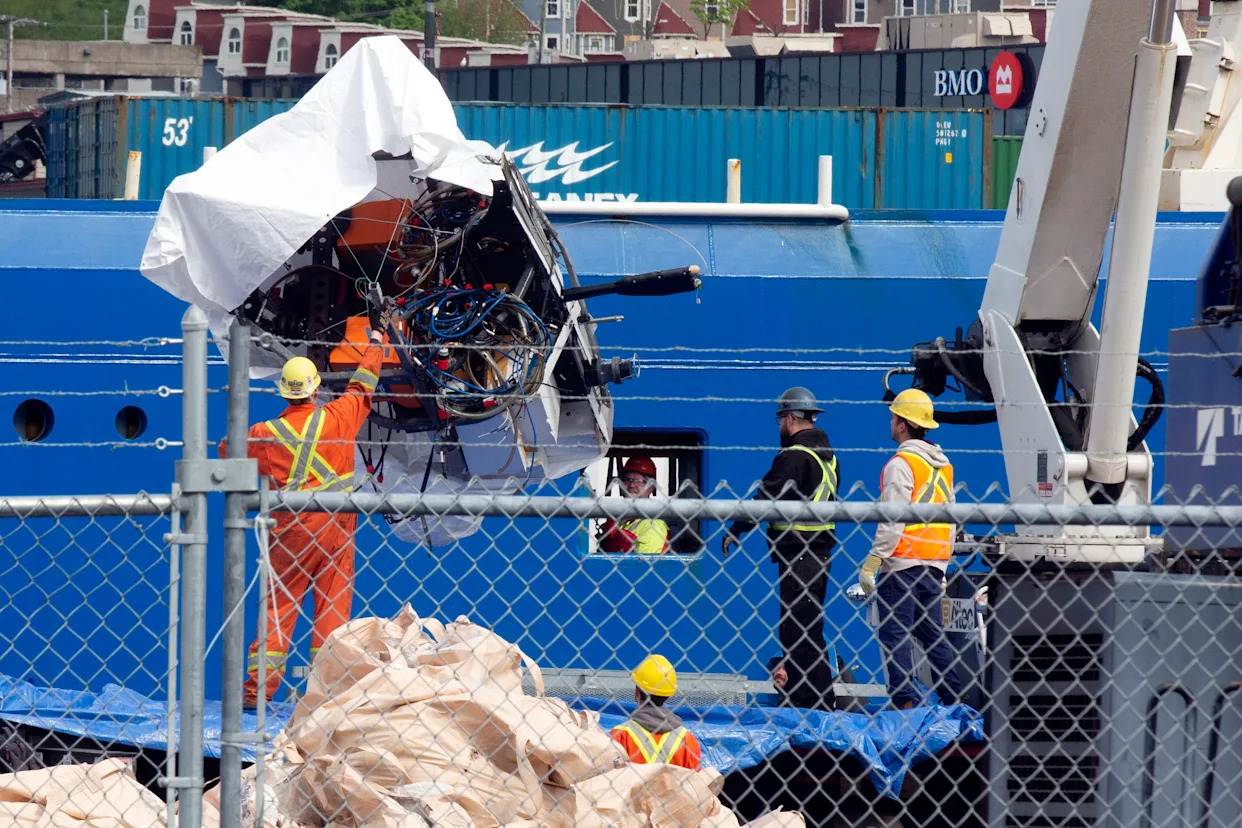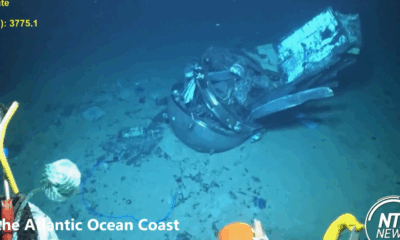Science
Titan Submersible Disaster: Investigators Cite Flawed Safety Protocols

On June 18, 2023, the Titan submersible tragically imploded during a dive to the wreck of the Titanic, claiming the lives of five individuals, including the vessel’s pilot, Stockton Rush, who was also CEO of OceanGate. According to a report released by the U.S. Coast Guard two years later, the disaster could have been avoided if not for serious lapses in safety protocols and a culture of negligence within the company.
The Titan, designed for expeditions to the Titanic wreck site, had been operational since 2021. The vessel was reported overdue on the day of its final dive, prompting an urgent search effort that involved ships, planes, and specialized equipment. The Titanic wreck is located approximately 12,500 feet (3,800 meters) beneath the surface, in an area where water pressure reaches around 400 atmospheres, equivalent to the force of a “whale biting on somebody,” as described by Arun Bansil, a physics professor at Northeastern University.
Design Flaws and Risks
The Titan featured a cylinder-shaped cabin made of carbon fiber, a design that diverged from the traditional sphere-shaped cabins typically constructed from titanium. Experts, including Chris Roman from the University of Rhode Island, have indicated that a sphere is optimal for withstanding the immense pressures encountered at such depths. The Titan had completed over two dozen deep-sea dives, which subjected its hull to significant stress. Additionally, investigators noted that the submersible was stored outdoors during harsh Canadian winters, exposing it to temperature fluctuations that could have compromised its structural integrity.
Despite warnings from experts about the potential for the hull to implode under extreme pressure, OceanGate proceeded with its expeditions. The catastrophic failure occurred suddenly, and those aboard likely had no warning before the incident. The victims included renowned French explorer Paul-Henri Nargeolet, British adventurer Hamish Harding, and two members of a prominent Pakistani family, Shahzada Dawood and his son Suleman Dawood.
Investigators’ Findings
The Coast Guard’s report revealed a troubling pattern of behavior at OceanGate, including a culture that downplayed and even falsified critical safety information. The organization reportedly aimed to bolster its reputation while circumventing regulatory scrutiny. Investigators pointed to a “toxic workplace culture” and highlighted multiple “red flags” that were ignored during operations.
Many former employees have corroborated these claims, stating that OceanGate was able to operate the Titan without adhering to established deep-sea protocols. The report emphasized that the company’s methods created confusion regarding regulatory oversight, ultimately leading to the catastrophic outcome of the Titan’s last voyage.
In light of this tragedy, calls for stricter regulations and oversight of deep-sea exploration have intensified. The implications of the Titan disaster extend beyond the immediate loss of life, prompting discussions about the need for enhanced safety measures in an industry that remains largely unregulated.
-

 Science2 weeks ago
Science2 weeks agoNostradamus’ 2026 Predictions: Star Death and Dark Events Loom
-

 Technology1 month ago
Technology1 month agoOpenAI to Implement Age Verification for ChatGPT by December 2025
-

 Technology6 months ago
Technology6 months agoDiscover the Top 10 Calorie Counting Apps of 2025
-

 Health4 months ago
Health4 months agoBella Hadid Shares Health Update After Treatment for Lyme Disease
-

 Health4 months ago
Health4 months agoAnalysts Project Stronger Growth for Apple’s iPhone 17 Lineup
-

 Health4 months ago
Health4 months agoErin Bates Shares Recovery Update Following Sepsis Complications
-

 Technology4 months ago
Technology4 months agoElectric Moto Influencer Surronster Arrested in Tijuana
-

 Technology5 months ago
Technology5 months agoDiscover How to Reverse Image Search Using ChatGPT Effortlessly
-

 Technology6 months ago
Technology6 months agoMeta Initiates $60B AI Data Center Expansion, Starting in Ohio
-

 Technology6 months ago
Technology6 months agoRecovering a Suspended TikTok Account: A Step-by-Step Guide
-

 Education4 months ago
Education4 months agoHarvard Secures Court Victory Over Federal Funding Cuts
-

 Technology2 months ago
Technology2 months agoDiscover 2025’s Top GPUs for Exceptional 4K Gaming Performance





















